- Last Updated: January 15th, 2026
Key Takeaways
Addiction and Mental Health: This article explores the link between social media addiction and various mental health issues.
Legal Actions Being Taken: Families are suing social media companies for their role in worsening children's mental health.
Potential Compensation: Parents may recover costs for medical care, therapy, lost earnings, and damages for emotional distress in successful lawsuits.
Social Media Harm Lawsuit
On this page we’ll discuss what you need to know about the Social Media Harm Lawsuit, the serious harm social media causes for our mental health, the ongoing Instagram Mental Health Lawsuit, the benefits of deleting social media for mental health, and much more!
Introduction to the Social Media Harm Lawsuits
Social media platforms provide an avenue for individuals to maintain connections with their distant relatives, continue friendships, and meet new people.
Unfortunately, these social media sites come with some consequences.
As our reliance on social media grows, so do our mental health problems.
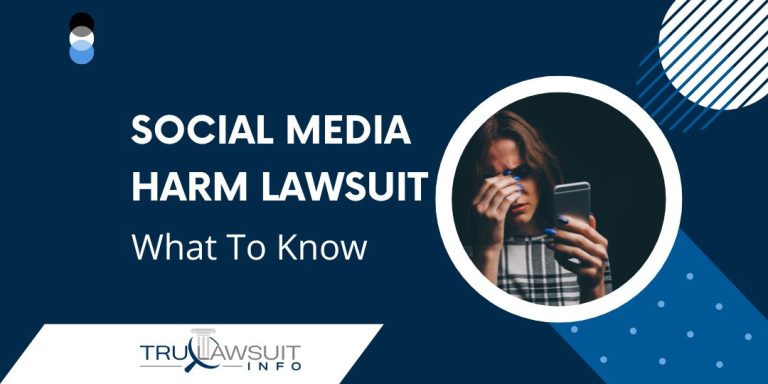
The correlation between the youth mental health crisis and social media addiction might seem far-reaching, but they are more closely related than you think.
Meta, TikTok, and other social media companies are well aware of this outcome but have yet to take action.
If you want to learn more about the staggering state of mental health among the youth, social media addiction, and what you can do about it, then keep on reading.
What You Need To Know About Social Media Addiction
Checking and scrolling through social media sites is a relatively harmless thing to pass the time, but anything in excess can be taxing to your mental health.
Mental health professionals classify social media addiction as a form of behavioral addiction.
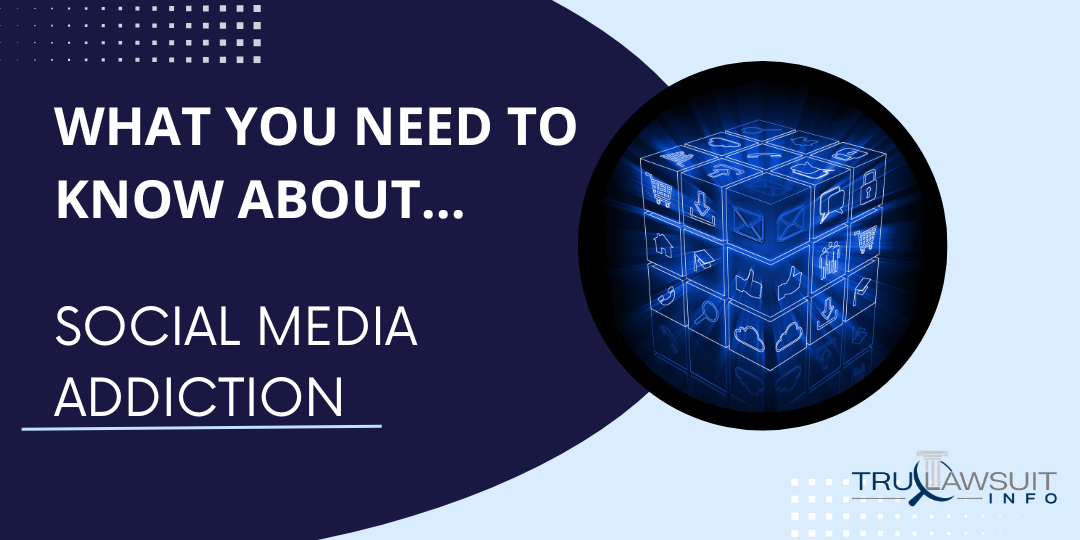
They believe about 5 to 10% of social media users exhibit signs and symptoms of social media addiction.
Social media addiction symptoms may appear harmless and unnoticeable at first glance.
The symptoms of this behavioral addiction are described in the Bergen Social Media Addiction Scale (BSMAS).
The BSMAS is a straightforward self-reporting questionnaire with six sections dedicated to the primary signs of social media addiction, which are:
- Salience: This sign refers to an individual’s need to check and preoccupy their mind with social media sites.
- Mood modification: This sign refers to an individual’s strong reliance on using and engaging in social media to manage their emotions.
- Tolerance: This sign corresponds to an individual’s increasing need to rely on social media to feel better.
- Withdrawal: In relation to tolerance, withdrawal refers to the physical reaction and mental retaliation when the individual is deprived of access to social media activities.
- Conflict: This corresponds to an individual’s inability to perform other activities due to an over-reliance on social media.
- Relapse: This sign is related to the individual’s tendency to revert to social media after abstinence.
The Detrimental Effects of Social Media Platforms on Mental Health
Various social media channels are associated with an extensive array of mental health issues, ranging from anxiety and depression to self-harm tendencies and declining self-esteem.
In this section, we will look at some common problems associated with social media addiction and the studies supporting them.
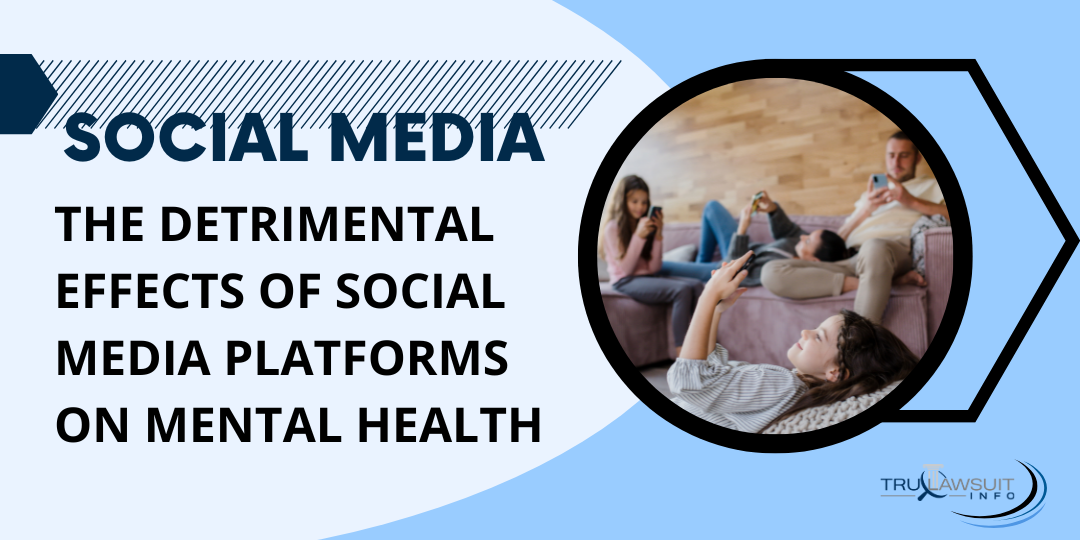
Causing Low Self-Esteem
If you’ve been surfing the internet for a while, you’re probably acquainted with certain claims that social media lowers an individual’s sense of identity and self-worth.
Several studies reveal that the more people spend time browsing Instagram and Facebook, the more they compare themselves to their peers, leading to a significant drop in self-esteem and mental health.
Coincidentally, this effect only appears significantly high in the aforementioned social media channels.
Inciting Fear of Missing Out (FOMO)
FOMO is a social notion that predates the creation of social media.
However, Facebook and Instagram have arguably made this phenomenon more prominent and powerful in the 21st century.
People, especially the youth, tend to feel inadequate when they are not invited or included in certain social events because of an unhealthy fear that their peers may be having a better time without them.
Compared to other social media platforms, Facebook and Instagram produced the highest levels of FOMO, as proven by research.
Combating FOMO might be hard, especially for socially-inclined individuals.
However, there are several steps you can take to curb this issue and safeguard your mental health.
Causing Social Isolation
Social media platforms are made to close the distance between friends and families and help people connect with new acquaintances.
Despite this, research suggests that social media might catalyze the feeling of loneliness as people replace in-person interactions with digital ones.
Isolation is a dangerous mental health issue that could grow into a life-threatening condition if left unchecked.
Worsening Eating Disorders
Eating disorders are already a major problem in today’s society, and social media might be making the situation worse.
Studies suggest that platforms such as Instagram can trigger eating disorders in vulnerable individuals by providing a platform for people to compare their bodies to influencers and models whose images have been heavily edited with photo-manipulating apps.
However, this is not the only effect social media inflicts on young users.
Reportedly, many children use social media or digital events as an excuse to skip meals or eat insufficiently.
Developing Depression and Anxiety
Depression is a life-threatening mental health condition affecting millions of individuals worldwide.
This psychological illness is characterized by extreme episodes of sadness, fatigue, and a loss of interest in activities and hobbies.
On the other hand, anxiety is a form of excessive worry and fear which can manifest in physical symptoms such as panic attacks.
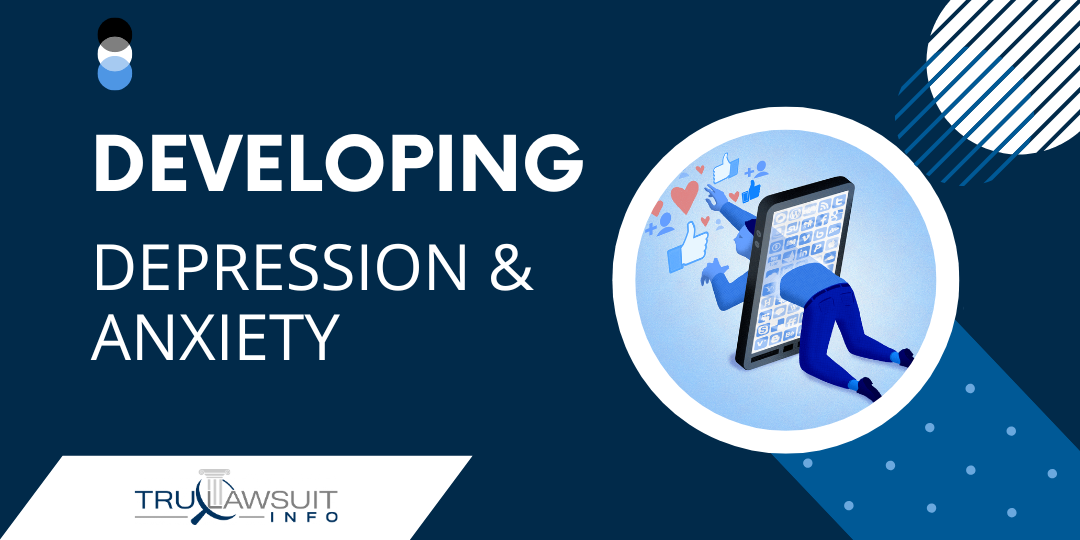
It is worth noting that mental health conditions such as depression and anxiety are usually caused by a combination of factors — not just social media usage alone.
Nevertheless, studies have revealed that immoderate reliance on these platforms could contribute to the development of these mental issues.
If you are manifesting depression symptoms and a tendency or inclination to commit self-harm, it’s critical to contact the National Suicide Prevention Lifeline (988) right away.
Experiencing Cyberbullying
Although many people associate declining self-confidence with consistent social media use, some people find the strength to be vicious behind their screens and keyboards.
These cyberbullies are often people who use social media as a weapon to attack and humiliate their peers.
Cyberbullying is more dangerous than traditional bullying because it can reach much wider audiences, which could lead to deeper emotional consequences for victims.
How Can You File a Lawsuit Against Social Media Companies?
For many years, social media giants have taken advantage of their users to share emotionally provoking content to increase usage and app engagement.
A statement from Frances Haugen, a former Facebook manager turned whistleblower, added fuel to the fire.
Haugen revealed that the social media algorithm creates little dopamine loops in the user’s brain, leading to addiction.
As we know by now, social media addiction could lead to various serious mental health issues.
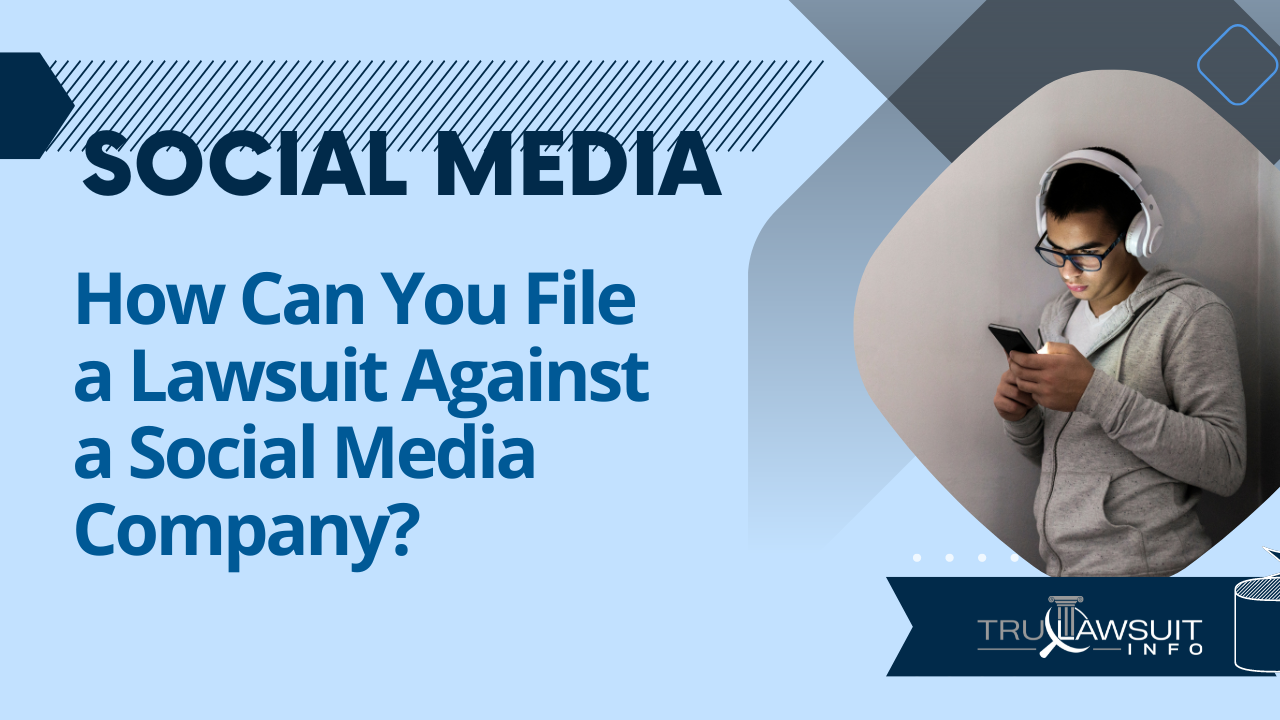
With the looming dangers of social media, parents take it upon themselves to initiate social media lawsuits and hold companies accountable for their extortionate algorithms.
In a published CBS News article, over 1,200 families are filing a lawsuit against social media companies for their children’s deteriorating mental health.
Many of these families accuse the social media algorithm of showing their children harmful content, further contributing to their declining mental health.
Although the legal system has yet to come up with a suitable verdict for these cases concerning social media addiction and its effects on mental health, it’s clear that more action needs to be taken by big tech companies when it comes to user safety.
What Damages Can You Recover in a Social Media Harm Lawsuit?
Social media addiction lawsuits often address the platform’s detrimental effects on a child’s mental health.
Because of this, parents are more likely to recover compensation relating to their child’s mental health issues.
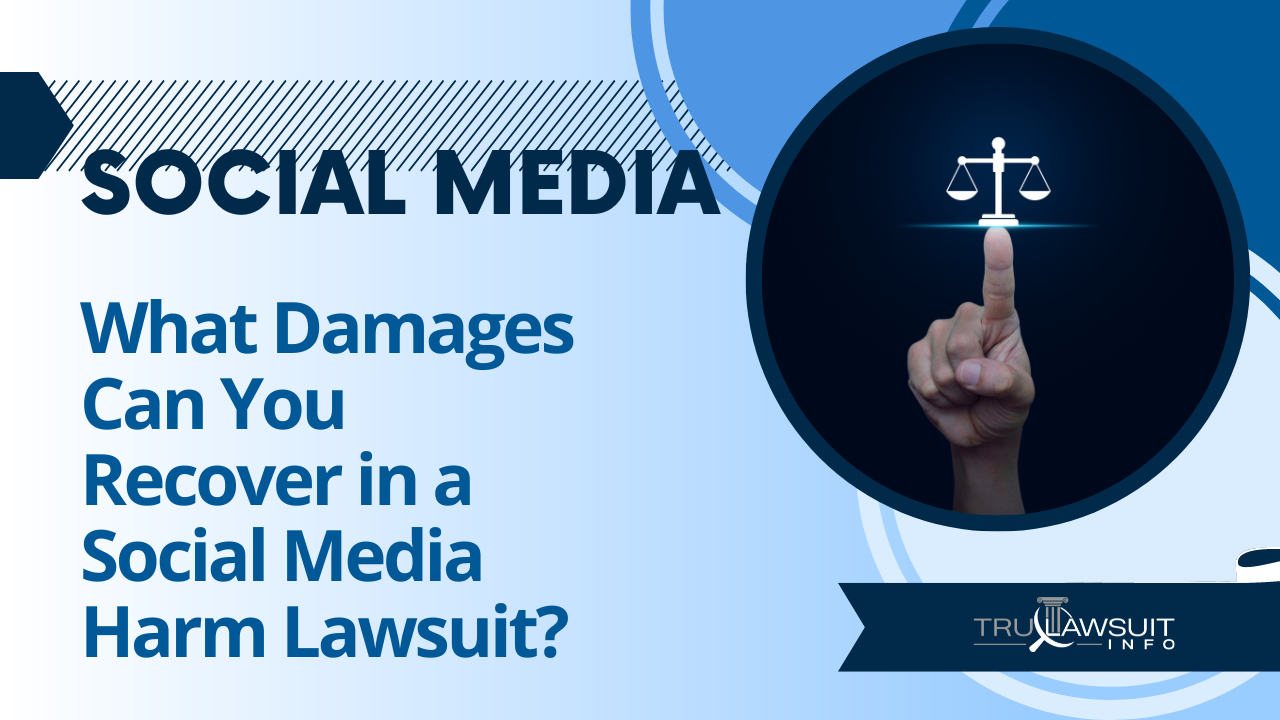
Recoverable compensation from social media addiction lawsuit includes the following:
- The cost of medical care for their child if harm is involved
- The cost of cognitive behavioral and dialectical therapy
- In-patient therapy services
- Emotional distress and mental suffering
- Lost earnings and job opportunities
- Damage to reputation
- Wrongful death
This list isn’t inclusive of all recoverable damages in a successful social media lawsuit.
It is necessary to speak with a lawyer specializing in this kind of case to fully understand your legal rights and options.
Getting the right legal help is critical to a successful case.
Request a Free Social Media Case Evaluation Today
Social media is meant to help us connect regardless of distance.
It’s a digital tool that we can use productively to create significant outcomes.
Unfortunately, pushing the boundaries of the digital realm comes with a cost.
With the rising case of dropping mental health, it’s now time for you to take the necessary legal actions against social media platforms and their algorithms.

If your child is suffering from the long-term effects of social media addiction, you have the right to file a social media addiction lawsuit.
With our exceptional and forward-thinking social media lawyers, you equip yourself with the best legal defense in this field.
Start your free consultation today, or use our chatbot for a free case evaluation.
Frequently Asked Questions
-
Social media usage, in moderation, is relatively safe and entertaining.
Unfortunately, many people these days rely heavily on social media to escape their reality, leading to addiction.
Social media overuse presents the risk of physical harm and mental health issues, such as:
- Sleep deprivation
- Depression
- Anxiety
- Decreased attention span
- Unrealistic expectations of life
With proper control and guidance, social media addiction can be averted, and you can have a safe and productive relationship with your smartphone and the internet.
-
Social media’s effects on the youth can’t be disregarded.
Children and teenagers today are exposed to social media at a very young age, and it’s slowly becoming an integral part of their lives.
As shown in the studies presented above, social media overuse is detrimental to the psychological health of the youth.
Social media addiction often leads to low self-esteem, loneliness, depression, anxiety, and more.
-
Social media addiction stems from regular use but with a lack of restraint and more indulgence.
Addictive social media behavior includes continuous checking of accounts, browsing for hours, and oversharing online.
There are several factors that increase the risk of social media addiction, such as:
- Being in a vulnerable emotional or mental state
- Having easy access to technology
- Using it as an escape from emotions or thoughts
The causes of social media addiction are endless but not entirely unstoppable.
Parents, educators, and peers must be aware of the symptoms to provide timely intervention and preventive guidance.
-
Yes. As mentioned, the social media companies Meta, TikTok, Snapchat, YouTube, and Roblox are facing over 1,200 lawsuits from families around the globe for their children’s worsening mental health conditions.
However, this doesn’t capture the entirety of the class action lawsuits thrown against these corporate giants.
Finding a reliable social media lawyer is your first step if you want to file a case for your family.
-
Diagnosing social media addiction by yourself can be tricky, as it’s hard to freely judge what is regarded as normal usage from your regular day-to-day social media consumption.
However, since you’ve found your way to our page, you might’ve sensed that you’re spending too much time on social media.
Here are some signs you should look out for in yourself:
- Constantly thinking about social media
- Neglecting essential tasks because of social media distraction
- Feeling anxious when you’re not online
- Being obsessed with getting likes and followers
- Having difficulty making real-life connections
If you are showing the above signs, it’s best to seek professional help or guidance from a mental health provider.
Oftentimes, a social media or digital detox is needed to curb the addiction.

Attorney Jessie Paluch, founder of TruLawsuit Info, has over 25 years of experience as a personal injury and mass tort attorney, and previously worked as an international tax attorney at Deloitte. Jessie collaborates with attorneys nationwide — enabling her to share reliable, up-to-date legal information with our readers.
Legally Reviewed
This article has been written and reviewed for legal accuracy and clarity by the team of writers and legal experts at TruLawsuit Info and is as accurate as possible. This content should not be taken as legal advice from an attorney. If you would like to learn more about our owner and experienced injury lawyer, Jessie Paluch, you can do so here.
Fact-Checked
TruLawsuit Info does everything possible to make sure the information in this article is up to date and accurate. If you need specific legal advice about your case, contact our team by using the chat on the bottom of this page. This article should not be taken as advice from an attorney.
You can learn more about the Social Media Harm Lawsuit by visiting any of our pages listed below:
Here, at Tru Lawsuit Info, we’re committed to helping victims get the justice they deserve.
To do this, we actively work to connect them with attorneys who are experts in litigating cases similar to theirs.
Table of Contents
Tru Lawsuit Info is a reliable source of information about issues that may affect your health and safety, such as faulty products, data breaches, and environmental hazards.
Our team of experienced writers collaborates with medical professionals, lawyers, and advocates to produce informative articles, guides, and other resources that raise awareness of these topics.
Our thorough research provides consumers with access to reliable information and updates on lawsuits happening around the country. We also can connect consumers with attorneys if they need assistance.
Here, at Tru Lawsuit Info, we’re committed to helping victims get the justice they deserve.
To do this, we actively work to connect them with attorneys who are experts in litigating cases similar to theirs.
